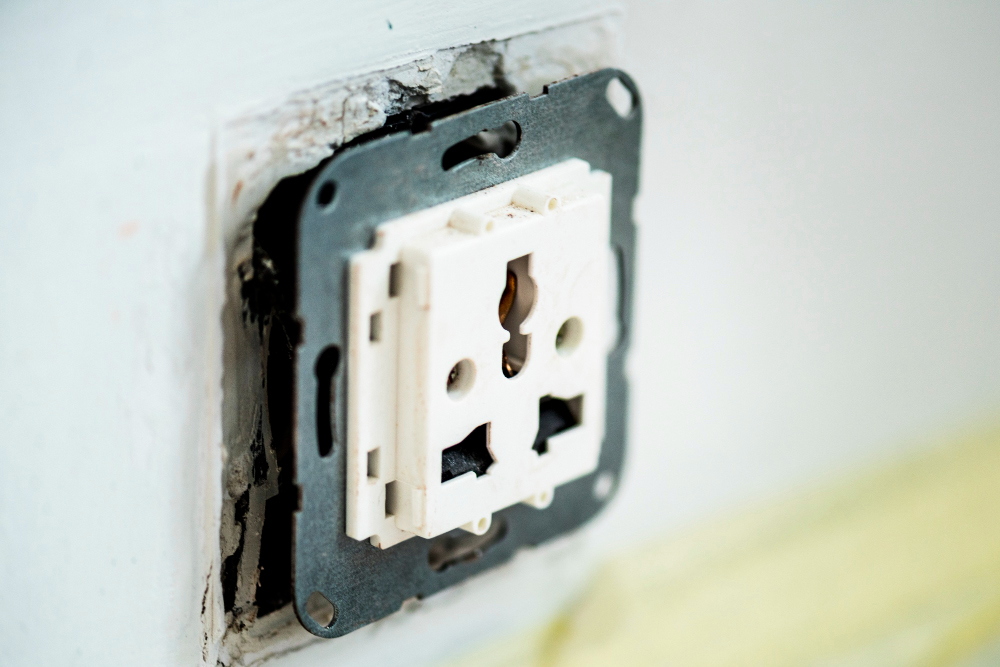Understanding Electrical Hazards at Home

Electricity powers nearly every aspect of modern life, but it’s easy to overlook just how dangerous it can be when not handled correctly. Every year, thousands of house fires, injuries, and even fatalities are traced back to electrical hazards in homes. Whether it’s frayed wires, overloaded outlets, or improper installations, the risks are real and often preventable.
This guide will help you understand the most common electrical hazards lurking in your home and provide tips on protecting your family and property. If you’re in Winter Park, FL, and need professional assistance, we’ll guide you on when it’s time to call local electrical contractors like Spectrum Electric Inc.
What Are Electrical Hazards?
Electrical hazards are situations where electricity poses a risk of harm, whether due to faulty systems, improper use of appliances, or user negligence. These hazards can lead to fires, shocks, or even power outages. Understanding these risks and knowing how to mitigate them is vital for every homeowner.
Common Electrical Hazards at Home
1. Outdated Wiring
Many older homes, especially those built 30 or more years ago, may have outdated wiring systems that are ill-equipped to handle today’s electrical demands. Over time, wiring can degrade, increasing the chance of a short circuit or fire. Homes without updated systems may also lack key safety features like Ground Fault Circuit Interrupters (GFCIs).
2. Overloaded Circuits
Plugging too many devices into a single power source can overload your electrical circuits, causing overheating. Overheated wiring is one of the leading causes of electrical fires in residential settings.
3. Damaged Electrical Components
Frayed wires, cracked outlets, or damaged appliances can expose live electrical currents. Not only can this cause electrical shocks, but it’s also a fire hazard.
4. Misuse of Extension Cords
Improper use of extension cords is a common but dangerous practice. Extension cords are often used as permanent solutions, which they are not designed for. This misuse can lead to overheating and electrical fires.
5. DIY Electrical Work
While DIY projects can be a great way to save money, attempting electrical work without proper knowledge is extremely dangerous. Improper wiring or installations can lead to severe hazards.
6. Lack of Maintenance
Wear and tear is common in any home, but neglecting routine electrical maintenance can increase the likelihood of hazards. Regular inspections by professionals are key to keeping your electrical system in top condition.
Understanding the Consequences of Electrical Hazards
Electrical hazards aren’t just about property damage; they can have serious health and safety implications.
- Electrical Shocks: Improper handling of electrical appliances or circuits can cause severe injuries or even fatalities.
- Burns and Fires: According to the National Fire Protection Association (NFPA), electrical malfunctions are the second leading cause of U.S. home fires.
- Power Failures: Faulty electrical systems can leave parts of your home without power, disrupting your daily routine.
How to Prevent Electrical Hazards in Your Home
Avoiding these risks is easier than you think, provided you follow these key practices.
1. Schedule Regular Electrical Inspections
Hire professional electrical contractors in Winter Park, FL, to evaluate your system. They can identify potential issues and ensure everything is up to code. Spectrum Electric Inc offers expert services to make this process hassle-free.
2. Upgrade Your Wiring
If your home is older, consider upgrading outdated wiring to meet modern safety standards. This not only reduces hazards but also ensures your electrical system can handle today’s tech-heavy lifestyle.
3. Be Careful with Extension Cords
Use extension cords as temporary fixes, not permanent solutions. If you consistently need more outlets, have additional ones installed by licensed electricians.
4. Inspect and Replace Electrical Components
Regularly check your outlets, plugs, and appliance cables for signs of damage. Replace frayed or worn components immediately.
5. Use Circuit Breakers and Surge Protectors
Modern circuit breakers can prevent overloads while protecting your appliances. Surge protectors are particularly useful for preventing damage to electronics during power surges.
6. Install GFCIs
GFCIs are designed to shut off power immediately if a ground fault occurs. These are especially important in areas like bathrooms, kitchens, and outdoor spaces where water and electricity might come into contact.
7. Avoid Overloading Outlets
Spread out your appliances across multiple circuits to avoid overloading any single outlet. Devices like space heaters and air conditioners are high-power consumers and should have dedicated plugs.
8. Leave Repairs to Professionals
Don’t attempt repairs or electrical installations yourself. Licensed professionals can ensure the work is safe and compliant with local regulations.
When to Call a Professional
Sometimes, detecting electrical hazards requires an expert eye. Here are some signs it’s time to call an electrician in Winter Park, FL, immediately:
- Frequent circuit breaker trips
- Burning smells near outlets
- Dimming or flickering lights
- Warm or discolored outlets
- Sparking plugs or appliances
If you’ve noticed any of these issues, don’t delay. Contact Spectrum Electric Inc, your trusted electrical contractors, to ensure your home is safe and functional.
Trust the Experts at Spectrum Electric Inc
Your family’s safety is too important to leave to chance. Whether you need an electrical inspection, wiring upgrade, or outlet installation, Spectrum Electric Inc is here to help. Our team of licensed electrical contractors in Winter Park, FL, is committed to providing top-quality service you can rely on.
To learn more or schedule an appointment, contact us today. Don’t wait for a hazard to become a disaster.
